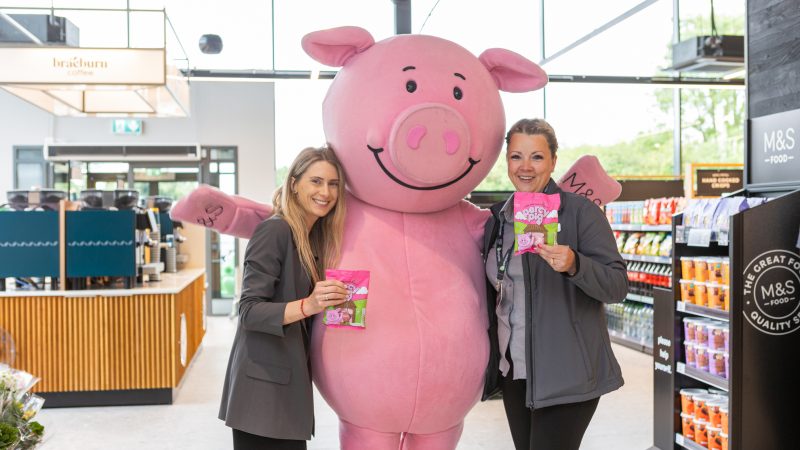Retailers wrestling with labour shortages, costs and government plans: RGDATA

There’s no easy fix for the problem of staff recruitment and retention in retail, RGDATA director general Tara Buckley has warned.
She says labour is a challenge across sectors and right across Europe and has been the subject of government and Retail Forum meetings.
“Right around the country, it’s very challenging filling rosters. Owners are probably working more in the stores themselves and it’s just a very challenging time at the moment,” she says.
“It’s one of the big issues on everybody’s mind. The owners themselves are extremely busy because not only are they working and running the stores during the day but they are then doing all the administration and the HR and everything else, so it’s long days and stressful work.”
Cost of doing business
Another key issue is the cost of doing business, including food price inflation and other rising costs across the board, she says.
“There’s extra stress at the moment for our members that only have one store because there’s nowhere to spread the cost across. They still have all the issues to do with regulation and all of the things that they have to comply with. Having one store with very tight margins in a very competitive marketplace is extremely challenging and then there’s the added stress of lack of staff or inability to fill rosters.
“Then the third area is there are a number of issues that are alive at the moment, things like government plans around wage costs, government plans around sick pay and government plans around pensions. That’s causing a bit of stress around adding to the cost of employment at a time when what people want is more money in their pocket. It’s very challenging for business owners because trying to ensure the shop is run efficiently is the big issue for them.”
Supertax proposal
RGDATA has just written to Minister of Finance Paschal Donohue calling for a supertax on insurers who fail to pay savings on reduced personal injury costs on to their customers.
“We’re now preparing plans with the Alliance for Insurance Reform for a national insurance day to highlight that although there have been a large number of reforms and some of them are starting to show impact in terms of the reform of the personal injuries pay-outs, the problem is we’re not seeing the impact on premiums,” Ms Buckley said.
“For our members, their insurance renewal is coming up and on average we’re still seeing increases in employer liability going up around 16%, so that’s really disappointing.
“We’ve written again to the finance minister Paschal Donohue. He has started talking about a super tax on energy companies’ profits to try and give money back to consumers for rising energy costs.
Soaring premiums
“We’ve asked him before, and we’re asking him again to consider a super tax on insurance company profits because if they don’t bring down the price of premiums… in terms of the system for reviewing personal injuries, things would have been changed and have brought the cost down in those areas, but we’re not seeing them being passed on to the actual policy holders.
“So if they’re going to go into the insurance company profits, the minister needs to come up with some kind of super tax on their profits and make sure that the policyholders see an impact from all of these changes.
“If they want to change the practices of these companies, they may have to make a dramatic move and we think that move could be around a super tax on their profits.”
Working groups
RGDATA is currently participating in a series of Retail Forum working groups including those looking at the Town Centre First Policy and transition to a green economy.
“In terms of the transition to the green economy, we will be promoting policies that are bringing consumers along the journey and ensuring that they use the carrot rather than the stick approach to try and get people to be more active in terms of reuse, recycling and using less single use plastic,” she said.
“Our members want to play their part but it’s extremely difficult in the current environment to start stripping out things like plastic packaging when your customers want it. I think the pandemic has changed consumer expectation of how they will purchase things like fresh confectionery products or breads or vegetables or fruit.
“We’re finding that people are opting for the packaging, not the single loose product, so work has to be done with consumers to get them on board about the reasons why we all need to do this and also about the health implications to do with this so that they feel comfortable moving and changing their practices and their habits.
“We think there’s a fair bit of work to be done to bring consumers along with the whole circular economy and reducing the carbon impact and reducing our use of single use plastics, rather than just always putting on levies. We know that that changes behaviour but at the same time we need to do something that encourages people to try and change their behaviour and also that they understand why they’re being asked to change their behaviour.”
Deposit return scheme
A lot of work is going on behind the scenes on the deposit return scheme, she said.
“A board has been established, a new company is being put in place and now we’re working through who the service provider will be and the service level agreement, and there’s an awful lot of detail that will have to be worked out over the next 12 months.
“But the first instance, there’s a licence application that has to be made so that’s where the focus is on now.
From our perspective, our two key pillars are that it is a cost neutral exercise for our members and that every member of ours, big, small medium sized, gets an opportunity to participate, that there’s an option for them in terms of reverse spending machines and the system will be run so that it’s fit for purpose for big, small and medium sized shops.
“Town Centre First of course is a big focus for us – we’ve been participating in the working group on town centres, and we have been making representations in terms of the actions promised in the Town Centre First policy that was published and trying to ensure that those actions are progressed and implemented.”
To read the full article in the March/April edition of IFCR, click HERE.








